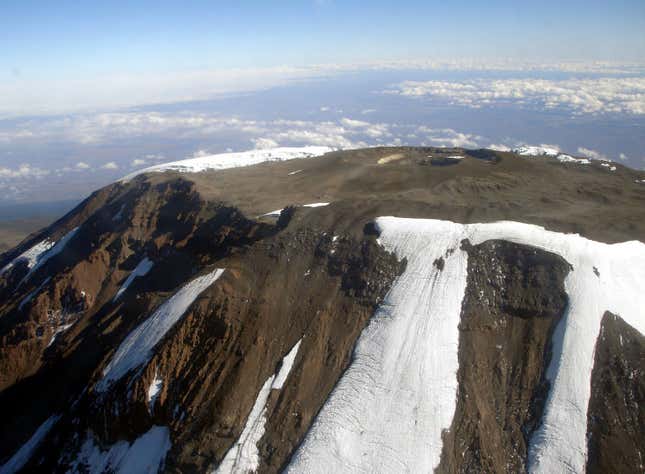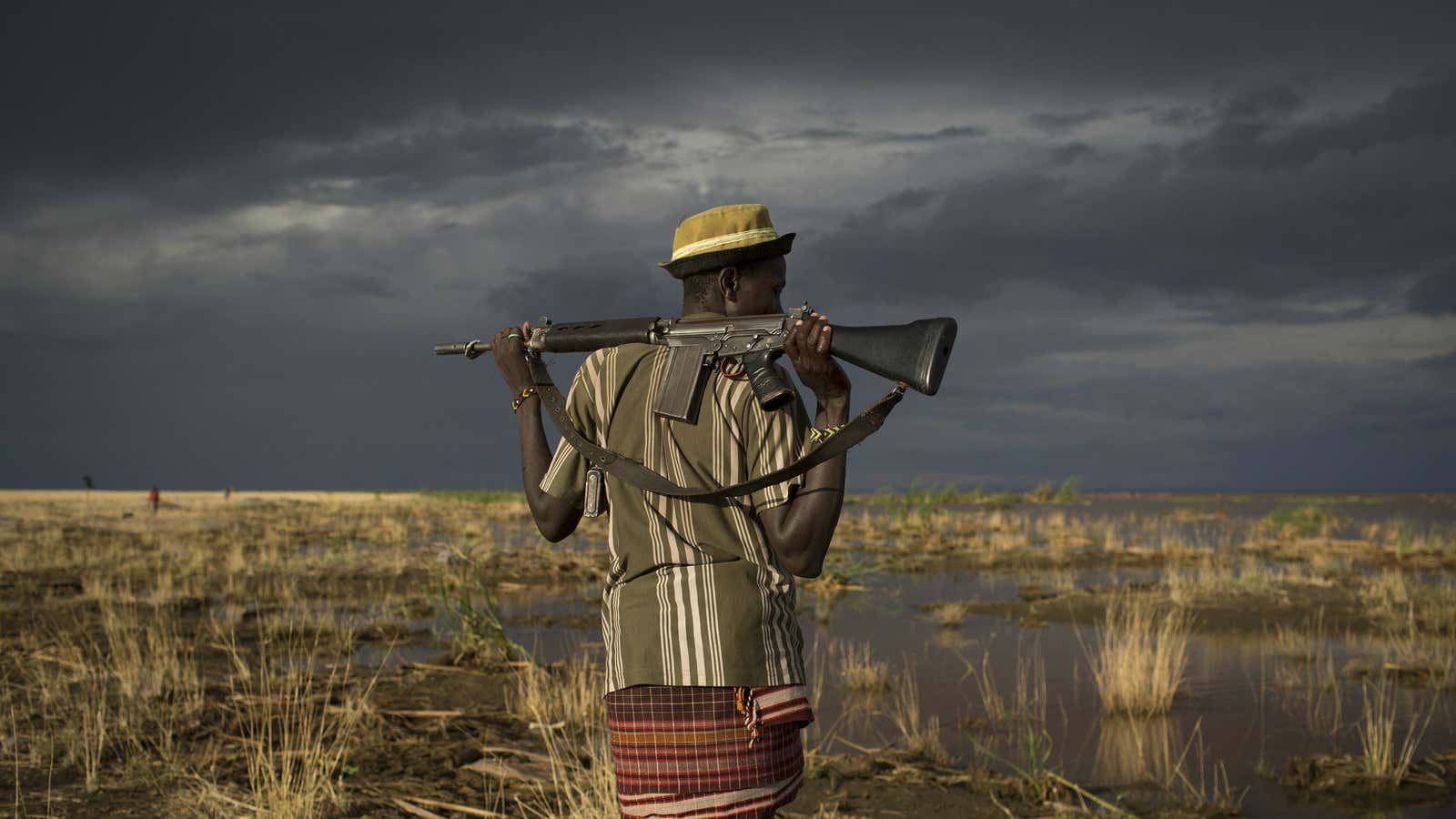Almost 60% of Africans believe that climate change is the single-most important threat facing the continent. They place this issue above fears about the economy or terrorism, according to a new survey from the Pew Research Center.
Environmentalists have been issuing warnings for a while now about Africa’s vulnerabilities to the effects of climate change.
Decreased rainfall and general weather unpredictability could mean that by 2020, agricultural yields for some countries could decrease by up to 50%. By the middle of this century, predictions are that average temperatures will jump by 1.5°C to 3°C, with the trend going up. (This warming will be larger than the global annual mean.) And by 2080, the amount of arid and semi-arid land on the continent is projected to increase (pdf) by between 5% and 8%.
All this could cost 5% to 10% of Africa’s GDP.

Analysts say the impact, which is already being felt across the continent, will be particularly severe in parts of Africa due to ”limited adaptive capacity, exacerbated by widespread poverty and the existing low levels of development.”
This may explain why almost 80% of Burkinabes, for example, are deeply worried about climate change.
